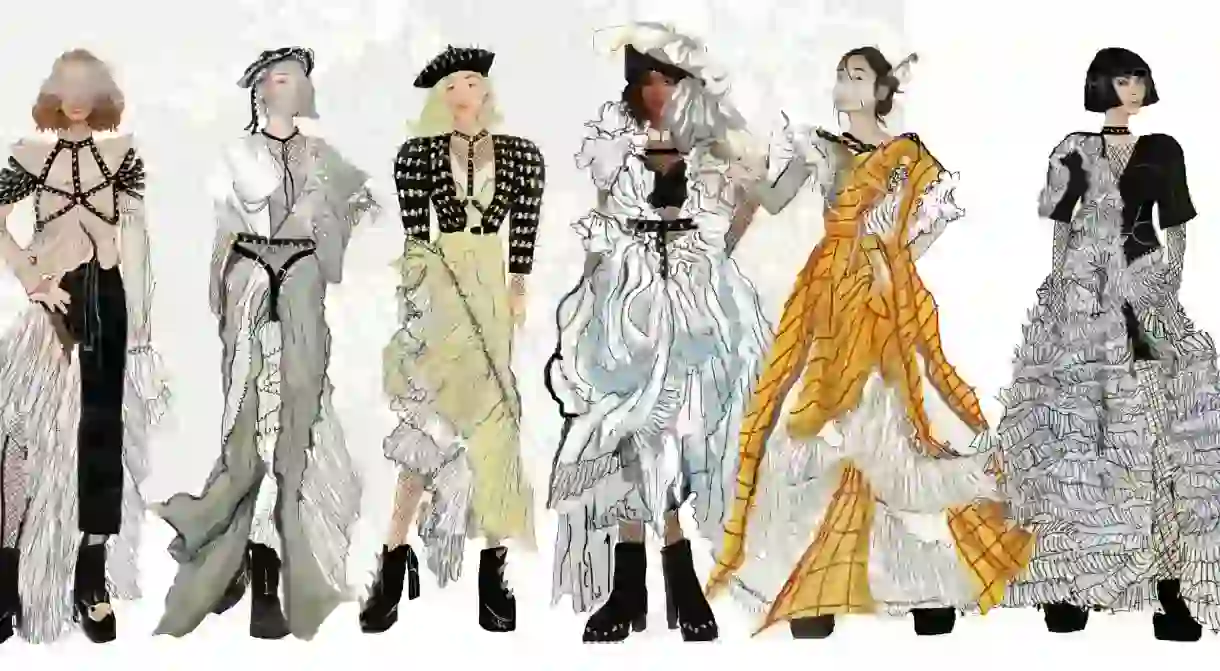This Young Designer Thinks Modern Fashion Is About More Than Great Design

Emerging designer Sarah Seb talks about what ethical fashion means to her and why the industry needs to embrace it.
Graduate Fashion Week (GFW) is a chance for a select number of students from the UK’s most prestigious creative universities to showcase their work to industry professionals and potential employers. Securing a spot in the final runway show or winning an award (the main one being the Christopher Bailey Gold Award and £10,000 that comes with it) is the ultimate aim.

But there’s one designer who, despite not being put forward for GFW by the University of East London where she studied, has defied the process and become one of the most talked-about new names in fashion. Sarah Seb focuses on sustainability and upcycling and, as a result, was shortlisted for the Lenzing Sustainability Denim award (a competition whereby designers were given the opportunity to ethically create a mini series of denim pieces) and was chosen by esteemed stylist and photographer Damian Foxe to be featured in the Talent of Tomorrow campaign.

Seb’s message is simple. “We don’t need to make more fabric,” she says. “We have enough. It’s just about knowing how to use it.”
Taking vintage pieces, specifically wedding dresses and other such cultural items found in vintage store Beyond Retro, the young designer works to combine seemingly unusable items and create something completely unique and relevant for now.
This way of working isn’t new for Seb: “I used to make pencil cases and book covers out of my old tops when I was a child. They were never very good, but I tried,” she laughs. But it wasn’t until a few years ago that she realised the true impact that the fashion industry has on the environment. “[It] is second only to oil in terms of pollution,” she says. “People need to stop being scared of second-hand clothing. The materials that I’ve found are amazing and significantly cheaper than I’d get them for brand new. My collection is all about DIY and about giving seemingly tired items new life.”

Seb’s is an outlook shared by many of GFW’s contributors. Aurélie Fontan, this year’s winner of both Catwalk Textiles Award and the Dame Vivienne Westwood Sustainable and Ethical Award, went so far as to grow her own fabric. For Seb, ethical fashion means little to no waste when it comes to production. “No-one can be 100% sustainable,” she says, “but every brand should be making steps towards being more so. Any fabric that I cut I used to line something else. I didn’t throw anything away. There is an alternative to fast fashion and I believe that this is it.”
A progressive and relevant outlook on fashion and its future, Sarah is keen to keep developing her skills. Looking to the future, she says: “I’d love to learn more about what can be done, to get a job as a creative engineer exploring how the industry can best eliminate waste.”













